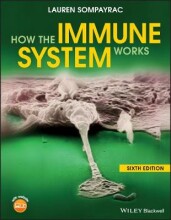T4: Metabolism
15 important questions on T4: Metabolism
Why is biotransformation - the metabolization of chemicals in order to eliminate them from the body - different for chemicals that are rather hydrophilic and chemicals that are rather lipophylic?
Lipophylic chemicals need to be metabolized to become hydrophilic in order to be excreted via the urine or bile
What is special about biomodification enzymes?
Phase II enzymes are conjugation enzymes.
They have a broad overlapping substrate specificity. This means they can activate/modify several different molecules. Whereas normal enzymes are only specific for one chemilcal.
The biomodification enzymes are adaptive and inducible. On what do they depent?
- diet
- smoking
- use of drugs
- environment contaminants, food additives, pestisides
Internal factors
- species-dependent differences
- organ-specific differences
- gender-specific differences
- age
- genetically determined differences
- Higher grades + faster learning
- Never study anything twice
- 100% sure, 100% understanding
What are important modifying enzymes/enzymes that catalyze reactions in phase I of biotransformation?
(CYP3A4 enzymes: biomodification of many drugs and toxins ?)
Chytochrome P450 mono-oxygenase: substrate RH + O2 + cofactors --> product ROH + H2O + other
How does a biomodification enzyme work/look like?
What is the aim of phase I of biotransformation: biomodification, in which enzymes such as cytochrome P450 modify chemicals through oxidation, reduction, hydrolysis?
Why are some people more sensible to some compounds than others?
What is true about biotransformation of xenobiotics?
-Hydrophilic metabolites do not require phase I or phase II metabolism to be excreted in the urine
What is the risk of a slow metabolizer?
The most important enzymes for phase II metabolism of xenobiotics with OH groups are
What is the consequence of the induction of CYP 1A2?
What kind of reactions take place in phase I modification?
The aim of these reactions is to make the compound more polar with a functional group.
These reactions are mostly performed by Cytochrome P450 enzymes. Mostly oxidation.
These phase I reactions can already result in bioactivation.
How does cytochrome P450 do mono-oxogenase?
What kind of reactions are happening in phase II conjugation?
The aim of phase II reactions is to make the compound water soluble (ready to be degraded or excreted by the body).
Which enzymes are there to react withcompounds with an OH-group in phase II reactions?
sulfotransferases
N-acetyl transferases
methyl transferases.
which are not reacting with an OH-group:
epoxide hydrolases
glutathion S-transferases
The question on the page originate from the summary of the following study material:
- A unique study and practice tool
- Never study anything twice again
- Get the grades you hope for
- 100% sure, 100% understanding






























